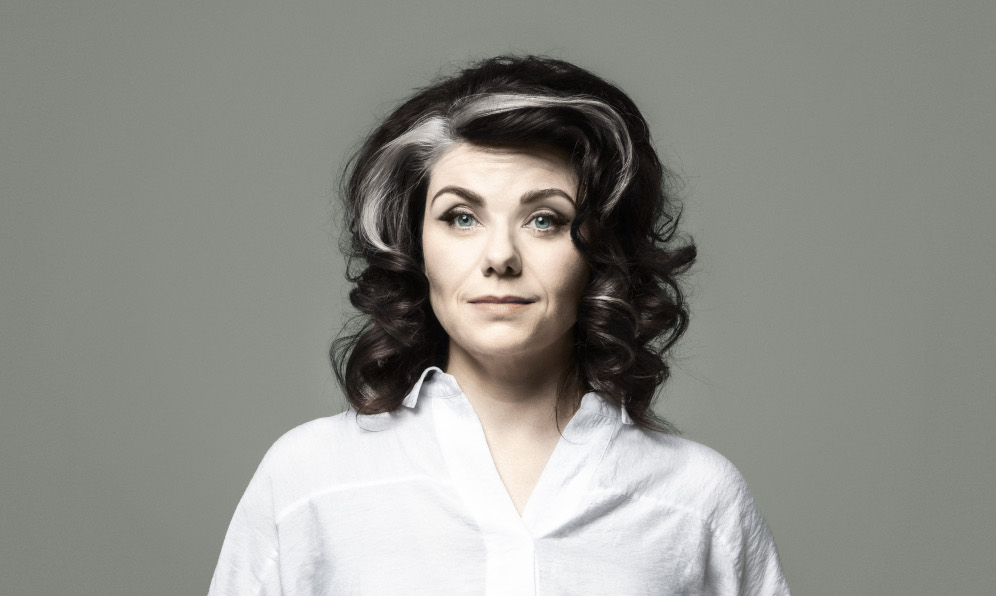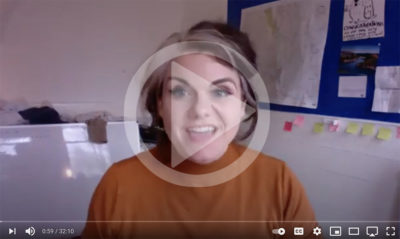
Caitlin Moran
Caitlin Moran on the secret of feminism
Headlining Wimbledon Bookfest Sunrise Festival, Caitlin Moran talks middle age, maintenance shags and More Than a Woman, her latest book
WORDS: TINA LOFTHOUSE
Feisty, powerful and just damnright funny, Caitlin Moran is hitting BookFest and it promises to be one whirlwind of an evening. The journalist and author has an answer, and a typically forthright and witty answer, for pretty much everything, from the hurricane-like force of men’s sneezes to what she’d do as prime minister.
Her new book, More Than A Woman, has just dropped, the latest in a long line of successful releases topping an enviable career that started as a rock journalist when she was just 16. Now 46, the book is a follow-up 10 years on from the huge hit How To Be A Woman, which delved into the many facets of feminism and reaching your thirties. And she has a lot more to share on the subject of what being a woman today means.
She says: “The first book was my life from 13 to 30, talking about experiences that most women will go through – your first period, when you discover masturbation, bad love affairs, birth, friendship groups, and explaining how this brilliant thing called feminism has the answer – as it has done for centuries. It’s a brilliant crowd-sourced resource of women across the world talking about their problems and coming up with solutions to being a woman.”
As Caitlin reached her forties, she realised that the nature of problems change in that they are external rather than internal. “When you’re younger, most of your problems are problems with you, it’s you working out who you are, who you love, how you want to look and how to like yourself. When you get into middle age, most of your problems tend to be other people’s problems. That’s the point where you become a carer and you’re looking after parents that are getting ill or failing, that’s when you’ve got teenage children whose lives are exploding. That’s when your friends are divorcing and coming to your house and needing to be counselled.
“On top of that we have the domestic labour and the second shift that feminism talks about – we get to go to work and then we have to come home and run a household. We have the emotional labour, too – the things that women tend to notice that men don’t like remembering birthdays, or how to look after people when they’re upset. And so basically in your middle age you become the fifth emergency service, you are holding together the fabric of society with your bare hands, for no pay.”
Middle-aged women are heroes, she says, but there has to come a point where you say no. “At the end of every day, you’re like, ‘wow, I made a massive difference’. But that’s the thing about having it all – you have to do it all. To answer the feminist question of, ‘can you have it all?’, I’m of the age now that I want to reply with, ‘I prefer not to’. I want the casual carefree life that men have in middle age.”
And the pandemic has only made things worse. “All of the statistics back it up, with women disproportionately bearing the brunt of homeschooling, childcare and domestic labour. They were the first ones to be laid off because their jobs were seen as less important. In academia, in the first three months of the pandemic, papers submitted by women had dropped by something like 80% because so many female academics and scientists were dropping out of the field in order to look after their children. So, time and time again, we’re always so close to feminism going back 100 years.”
“And you can’t get fired from being a woman, whatever happens it will be fine…”
She says that it is crucial that men and women share the load 50/50. And she means 50/50. “When you have the guy doing 47% of the housework and childcare, you might be happy with that and think that is a lot more than many men. But that extra 3% is something you’re having to pick up the slack on. All we have in our lives is time and if you are persistently doing more than your male partner, then you’re losing time for joy, you’re losing opportunities to earn money…”
One solution is a whiteboard. She says: “I’m lucky in that I’m married to one of the most feminist men that I know but I still think that as a woman you’re forward planning more. You are the one booking the holidays in advance, you are the one that remembers to worm the dog and sort out the children’s sleepovers. So the biggest difference that I have found in my life is having a whiteboard in the kitchen, and I write on it all of the things that are in my head that are making me angry. Women have such long to-do lists so I now write them on the board and my children and my husband have to tick them off, and then I stop being angry, and I turn back into a nice person, and everyone’s happy.
“And once you’ve outsourced the to-do list of boring things then you need to write a second to-do list for the things you find joyful. That is a really important part of feminism.”
So, what else has she discovered about turning middle aged? Surely it can’t all be bad? Not at all, she is clear to stress. “You care less about what other people think and that is liberating. Many young women care so much that they might do something wrong, or people might not like them or they’re not approved of.
“By the time you get to 46, you have screwed up so many times and you realise you’re still here, you’ve still got friends, you’ve still got your job. As long as you weren’t deliberately being an asshat and you’ve apologised if you did something that was unkind, you will survive.
“And you can’t get fired from being a woman, whatever happens it will be fine…”
Caitlin Moran will be at Wimbledon BookFest in conversation with Razia Iqbal Sunday 13 June.
Image: Alex Lake
READ MORE:
Festival 2021: all the best events on your doorstep







